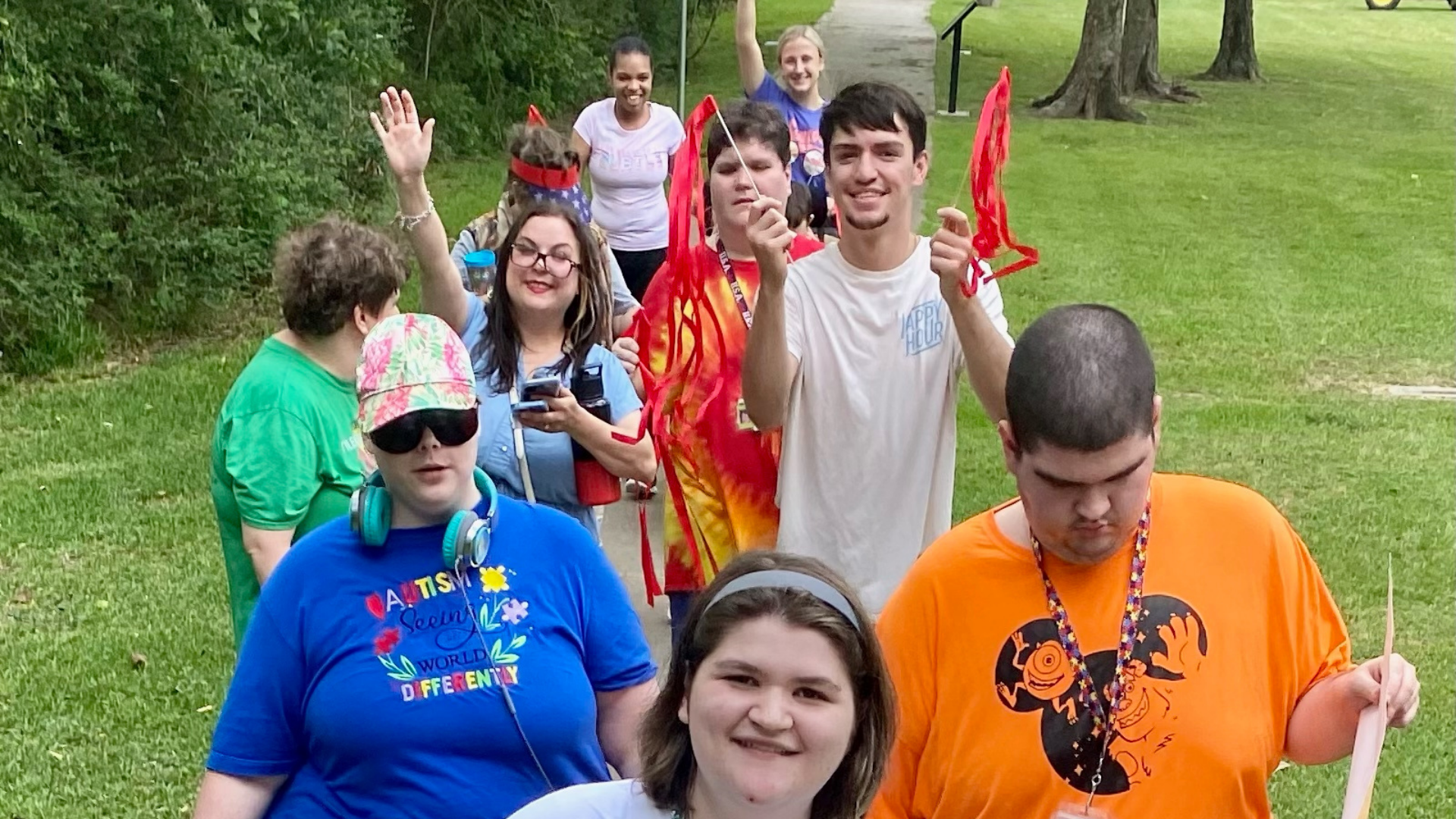Everything You Need to Know About Texas HCS Host Home/Companion Care in Texas HCS
Texas HCS Host Home/Companion Care is a statewide program that provides in-home services to eligible adults who are unable to live independently. The goal of the program is to help participants remain in their homes and communities as long as possible. Services include personal care, light housekeeping, meal preparation, and transportation. The Texas HCS Host Home/Companion Care program is administered by the Texas Health and Human Services Commission (HHSC) and facilitated by Texas HCS providers.
Key Takeaways
- Host Home/Companion Care is a statewide program for adults with intellectual/developmental disabilities who are unable to live independently
- Provides personal care, light housekeeping, meal preparation, and transportation in a caregiver’s home
- Offers a more informal and caring atmosphere compared to Residential Group Homes
- Participants live in a family-like setting and have improved quality of life, increased independence, and individualized care and support
- To be eligible, adults must be 18+, Texas residents, have a disability preventing independent living, and meet income/resource limits
- Apply by contacting the Local IDD Authority and completing an assessment to determine eligibility
- Host Home providers must complete training, maintain their home to program standards, work with the participant’s case manager, provide a safe and clean living environment, and meet the participant’s physical, emotional, and social needs
- Participants have access to community resources and opportunities to participate in community activities.
What is Host Home/Companion Care?
In a Host Home/Companion Care program, caregivers assist people with intellectual and developmental disabilities with daily living skills and other personal demands in the same way as a Residential Group Home program. However, because service is provided in the caregiver’s own home, Host Homes often provides a more informal, caring atmosphere.
Individuals with intellectual and developmental disabilities may thrive in a Host Home/Companion Care setting because warmth, compassion, and respect are typical in a caring family environment. Being part of the family in a Host Home usually leads to a rewarding quality of life.
To be eligible for services, adults must:
- Be 18 years of age or older
- Be a Texas resident
- Have a disability that prevents them from living independently
- Meet income and resource limits
How do I apply for the program?

To apply for the Texas HCS Host Home/Companion Care program, contact your Local IDD Authority (LIDDA). You will be asked to complete an assessment to determine your eligibility for services. From there, your LIDDA will work with you to develop an Individual Plan of Care (IPC) that outlines the services you need and how those services will be delivered.
What are the benefits of participating in the program?

There are many benefits to participating in the Texas HCS Host Home/Companion Care program. Some of these benefits include:
Living in a family-like setting
One of the main benefits of the Host Home/Companion Care program is that it allows participants to live in a family-like setting. This can provide a sense of belonging and stability that may not be possible in other types of living arrangements.
Improved quality of life
Another benefit of the program is that it can lead to an improved quality of life for participants. This is because participants are able to receive the services they need in the comfort of their own homes. Additionally, because Host Home/Companion Care providers are typically located within the community, participants have the opportunity to build relationships with their caregivers and other members of the community.
Increased independence
Yet another benefit of participating in the program is that it can lead to increased independence for participants. This is because Host Home/Companion Care providers can help participants with activities of daily living, such as bathing, dressing, and meal preparation. Additionally, Host Home/Companion Care providers can provide transportation to and from doctor’s appointments and other activities.
Receiving individualized care and support
In this setting, participants receive individualized care and support. This is because each participant has their own caregiver who works with them to meet their unique needs. Additionally, the small size of most Host Homes allows caregivers to get to know their participants well and provide them with the individualized care they need.
Having access to community resources
Participants in the Host Home/Companion Care program also have access to community resources. This is because most Host Homes are located within the community, which gives participants the opportunity to participate in community activities. Additionally, caregivers can help participants connect with community resources, such as recreation programs and support groups.
What are the responsibilities of a Host Home provider?

Host home providers play an important role in the Texas HCS Host Home/Companion Care program. Some of their responsibilities include:
Completing required training prior to accepting a participant
Host Home/Companion Care providers must complete required training prior to accepting a participant. This training covers topics such as first aid, CPR, fire safety, and emergency preparedness. Additionally, Host Home/Companion Care providers must complete a criminal background check and a home study.
Maintaining their home in accordance with program standards
Host Home/Companion Care providers must also maintain their home in accordance with program standards. This includes ensuring that the home is clean, safe, and comfortable for the participant. Additionally, Host Home/Companion Care providers must have liability insurance.
Working with the participant’s case manager to develop and implement the Individual Plan of Care
Host Home/Companion Care providers also work with the participant’s case manager to develop and implement the Individual Plan of Care. This document outlines the participant’s needs and goals, as well as the services that will be provided by the Host Home/Companion Care provider.
Providing a safe and clean living environment
Host Home/Companion Care providers must provide a safe and clean living environment for the participant. This includes ensuring that the home is free of hazards and that the participant has access to appropriate medical care. Additionally, Host Home/Companion Care providers must provide meals and transportation for the participant, as well as participate in activities with the participant.
Meeting the physical, emotional, and social needs of their participants
Host Home/Companion Care providers are expected to meet the physical, emotional, and social needs of their participants. This includes providing personal care and support, as well as helping the participant to participate in activities within the community.
Encouraging independence
Host Home/Companion Care providers are also expected to encourage independence in their participants. This includes helping the participant to develop and achieve goals, as well as teaching them new skills. Additionally, Host Home/Companion Care providers should provide support and encouragement to help the participant maintain their independence.
Assisting with activities of daily living, as needed
Host Home/Companion Care providers may also assist with activities of daily living, as needed. This includes help with dressing, bathing, and grooming. Additionally, Host Home/Companion Care providers may provide transportation to doctor’s appointments and other activities outside the home.
Transporting participants to doctor’s appointments and other activities, as needed
Host Home/Companion Care providers must also transport participants to doctor’s appointments and other activities, as needed. This includes ensuring that the participant has a ride to and from appointments, as well as to and from any other activities that they may participate in.
What are the expectations of participants in the Texas HCS Host Home/Companion Care program?

Participants in the Texas HCS Host Home/Companion Care program are expected to follow the rules and regulations of the program. Additionally, participants are expected to participate in activities that promote their independence and wellbeing. Participants are also responsible for their own personal care and hygiene. Lastly, participants are expected to respect the property of their host home providers and to keep their living space clean and orderly.
How can I get more information about the program?
For more information about the Texas HCS Host Home/Companion Care program, please contact your Local IDD Authority servicing your county or area.
Host Home Companion Care – Texas HCS and Day Habilitation …
Closing thoughts

The Texas HCS Host Home/Companion Care program provides individuals with intellectual and developmental disabilities the opportunity to live in a safe and supportive home environment. This program offers many benefits to both participants and host home providers. If you are interested in learning more about this program, please contact your Local IDD Authority.
About Above and Beyond Caring

Since 2007, Above and Beyond Caring has served individuals with IDD in the Brazoria and Galveston County areas by providing Texas HCS services, including Host Home/Companion Care, Residential Group Homes, Supported Living, and In-Home Respite.
- Our mission is to provide quality care and support to individuals with intellectual and developmental disabilities in the Brazoria and Galveston County areas.
- Our vision is to be a leading provider of quality care and support for individuals with intellectual and developmental disabilities in the Brazoria and Galveston County areas.
- Our values are compassion, excellence, and integrity.
We are passionate about supporting our community and providing quality care for those in need. For more information about our organization or to inquire about our services, please contact us at (979) 202-0055 today.
About Mary Jenkins
Mary Jenkins has over 25 years experience helping individuals with IDD live and thrive in their community. She founded Above and Beyond Caring in 2007 to provide Texas HCS services in the Texas Gulf Coast area. She is also the Director of the Community Inclusion Project, a 501c3 nonprofit dedicated to ensuring all individuals have access to their community. She is passionate about her work and believes that everyone deserves the opportunity to be a part of, and contribute to, the world around them. Mary is a tireless advocate who is passionate about helping individuals with IDD live fuller, more meaningful lives.


